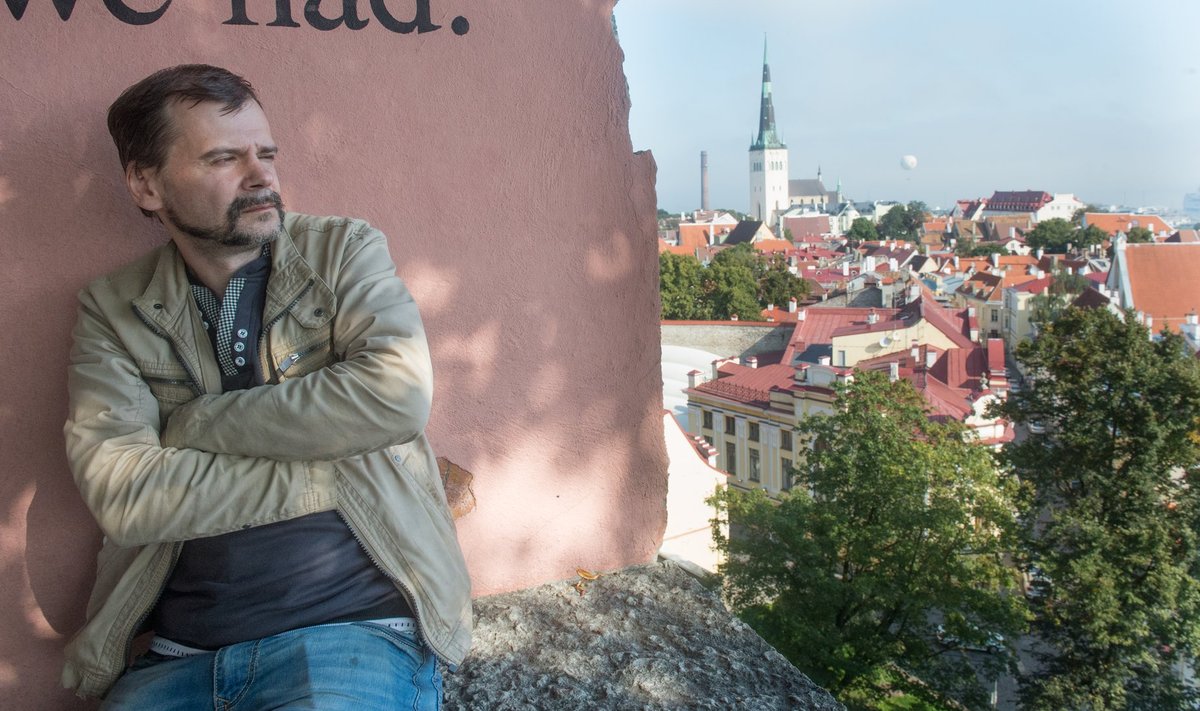Exiled Russian artist in Tallinn: freethinkers are not protected against attacks in Russia

Dmitri Kremnev, a Russian artist who was beaten up in St. Petersburg and fled to Estonia, says that the censure on arts has become extremely strict in Russia since the beginning of Ukraine crisis, in an interview given to Eesti Päevaleht.
Kremnev is not planning return to Russia and has found a safe haven in Estonia.
"I will not return to Russia until my attackers have been arrested," Kremnev says.
He has got a reason to fear. Few weeks ago, he fell victim to a brutal physical attack because of his involvement with a planned Russian opera called "New Jerusalem".
The opera features a lead character who hunts paedophiles. It has parallels with Russian neo-Nazi leader Maxim Martsinkevich, also known as Tesak, whose group hunted and tortured paedophiles and who has since been jailed for inciting racial hatred.
"New Jerusalem" was originally scheduled to have its St. Petersburg premiere in April, but was postponed, following anonymous calls and threats. After finding an alternative location for the opera, the creators were forced to cancel it altogether in August, after threats continued. The award-winning local composer behind the opera, Ilya Demutsky, was beaten up few days later, with threats to his life.
The same fate fell to Kremnev few weeks ago. Since he doesn’t have any faith in proper investigation of his case by the Russian authorities, he is afraid to return to his motherland.
"I don’t believe that the authorities will investigate and find the attackers because they are interested to suppress freethinking artists," Kremnev said.
"It’s like collaboration between the state and those thugs - the authorities wouldn’t tolerate forms of art that fail to support the official state line and these thugs will do the dirty work, threatening and beating up artists, who have alternative views. The state is interested in the existence of these attackers who will only find more encouragement. No one, apart from the victims, is interested in the investigation."
Kremnev says that the Russian state censure on art has become gradually stricter since 2011, but got really intensive since the start of the Ukraine crisis.
"A popular Russian singer Diana Arbenina sang in Kiev recently and she was banned performing in Russia afterwards. This is just an example – the cultural ideology has become entirely anti-Western in Russia," he complains.
"The artists who are trying to do something that is not approved by the authorities, are vulnerable to physical and other attacks. The situation has become especially unbearable in St. Petersburg. If traditionally the city was considered to be the cultural capital of Russia, then lately it has become to be known as the capital of suffering."
"St. Petersburg is full of extreme nationalist groups that are neo-Nazi in nature. They are not following Hitler’s Nazism, but their ideology does not differ much from fascism. Many members of those militant groups have gone to fight with pro-Russian rebels in east Ukraine. They were already dangerous before, but what will happen upon their return?" Kremnev asks rhetorically.
Kremnev reckons that his attackers stemmed also from one of the neo-Nazi groups in St. Petersburg.
In the meantime, he is planning to stay in the Estonian capital, at least until Russia returns to normality.
"My grandparents used to live in Tallinn and it was easy and convenient to come here. I’m afraid to return to Russia," he says.